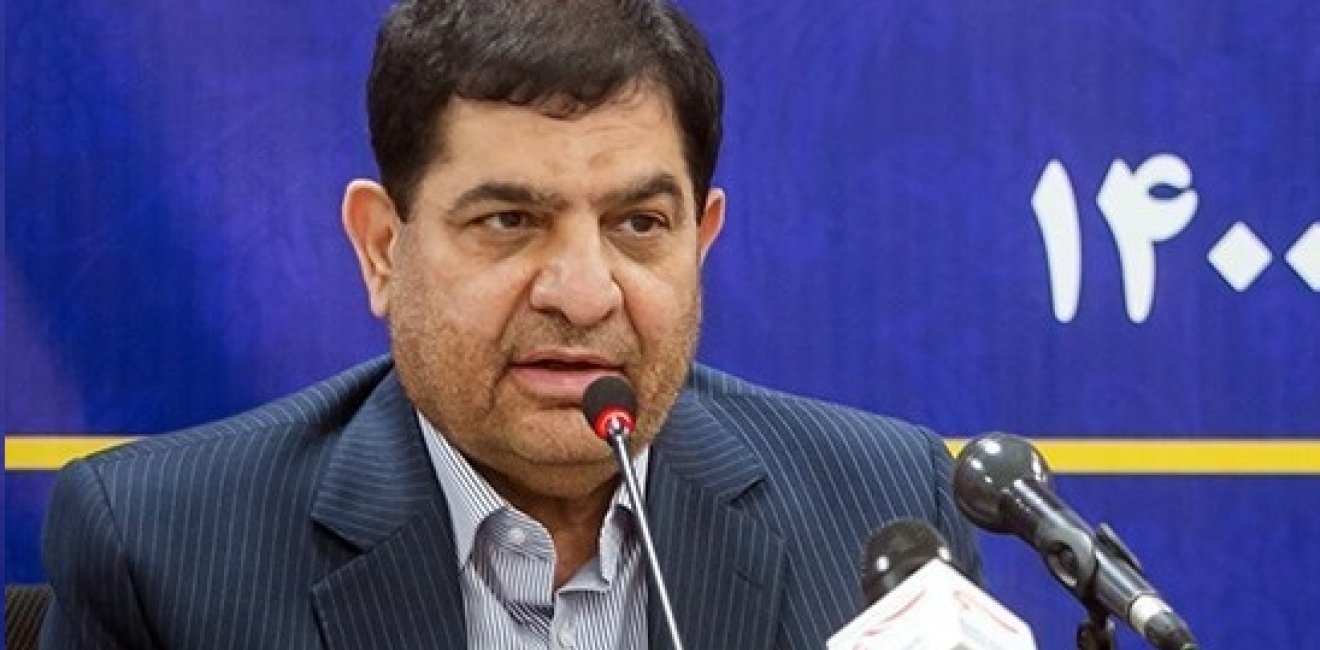In less than two days after the death of Iran’s president, Ibrahim Raisi, in a helicopter crash on May 19, the supreme leader named Mohammad Mokhber, the first vice president, as the new interim president. Elections must be held in 50 days, on June 28, for a permanent replacement for Raisi. Ayatollah Khamenei has named a three-man team, composed of the interim president, the speaker of the House, and the head of the Judiciary, to make rapid arrangements for the new elections. Mokhber may run as a candidate, and given the regime’s control over elections, he may well be Iran’s next president.
Who is Mohammad Mokhber?
Mohammad Mokhber was born and raised in Dezful, a city in Iran’s oil rich province of Khuzestan. Like many of Iran’s current top officials, he boasts multiple degrees, in his case in law and management (given this propensity to amass degrees, an Iranian scholar once suggested every baby born in Iran should be given the title of doctor to ease the burden on universities). He started his career in Khuzestan as deputy governor of this oil-rich southern province. He then moved to Tehran, where he has since held a variety of positions in government-affiliated institutions and the offices of the supreme leader, including the Foundation for the Disinherited, the Foundation for Execution of Imam Khomeini’s Directives (Setad), and the Sina Bank—a network of organizations that now controls huge assets based on the confiscation of private properties after the revolution and on state businesses, providing the supreme leader with a considerable means for patronage.
Mokhber is among the regime’s hardliners on domestic policy and social issues, particularly when it comes to women’s rights. His tenure as first vice president included President Raisi’s brutal suppression of the 2022 “Women, Life, Freedom” protest movement, Mahsa Amini’s death at the hands of the morality police that triggered the protests, and the arrest, imprisonment, torture, and rape of the protesters, including university students, professors, artists, and human rights activists. Like his colleagues, he maintained silence and is not known to have objected as these crackdowns were being carried out.
Vice presidents, who are appointed by the president without the need for approval by parliament, are usually low profile, and report directly to the president, are not well-known to the public. In the coming weeks, Iranians will come to know Mokhber better.
The interim president now faces the major task of running the government, helping organize elections for a permanent president, and reassuring the public that all will run smoothly in the weeks and months ahead, as both he and the supreme leader have sought to do. Mokhber keeps Raisi’s cabinet intact, except for appointing an acting foreign minister. Ali Bagheri Kani replaced Amir Hossein Abdollahian, who was also killed in the helicopter crash that took Raisi’s life. Bagheri Kani is a seasoned diplomat with wide experience in negotiating with the West. He was part of the nuclear team. He is also close to the supreme leader. His brother is married to Ayatollah Khamenei’s youngest daughter.
Mokhber has been in senior government positions long enough to know that the ultimate decision-maker in domestic and foreign policy is the supreme leader and that his job as interim president is to execute his wishes. With less than 50 days before his role as interim president expires, Mokhber is unlikely to introduce major changes or take new initiatives.
Upcoming presidential elections
Meanwhile, interest will focus on the arrangements for the election of a permanent president. To the chagrin of the supreme leader, turnout in the last presidential and parliamentary elections, as well as the elections for the Assembly of Experts, which is tasked with selecting Iran’s next supreme leader, was disappointingly low. The reason: moderates were excluded, and generally only candidates approved by the regime were allowed to run.
We will know before long if, this time, to encourage wider voter participation, the supreme leader and his advisers will allow conservative moderates to stand for president as well. If so, in addition to Mokhber, the candidates may well include lay politicians like Ali Larijani, the former speaker of parliament; Saeed Jalili, the former nuclear negotiator, and Mohammad Bagher Ghalibaf, the former mayor of Tehran and current speaker of parliament.
But Khamenei may, this time again, prefer to see another high-level conservative cleric as president and no moderates run. The result will be another engineered presidential election and another instance of low voter turnout.
The views expressed in this piece are those of the author and do not express the official position of the Wilson Center.








